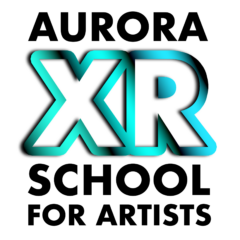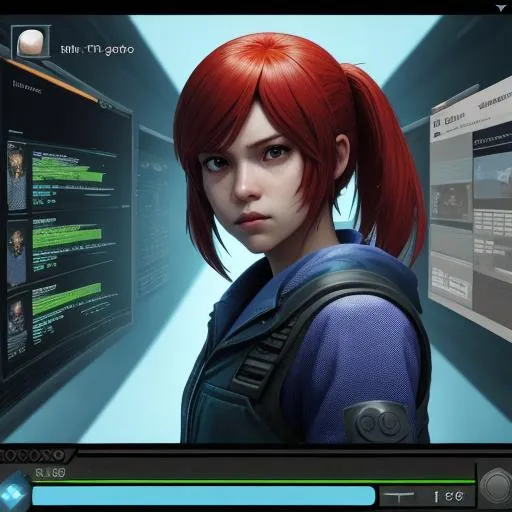
Workshop »Autonomous Avatars in XR Art & Culture« (Discussion & Brainstorming)
Starting from the status quo – e.g. more or less interactive non-player characters in games, technologies for chatbots and dialog systems – Xenia Klinge and Dr. Tanja Schneeberger will analyze what is actually needed for better virtual characters and why implementation is so difficult – even with the current state of the art. The DFKI researchers will spotlight some particularly exciting aspects, such as non-linguistic communication and relationship building between humans and virtual characters, in order to open up a discussion that will be further explored in the subsequent workshop.
* FULLY BOOKED *
26.06.24, 3.30–4.30 pm,
Moderation: Maja Stark
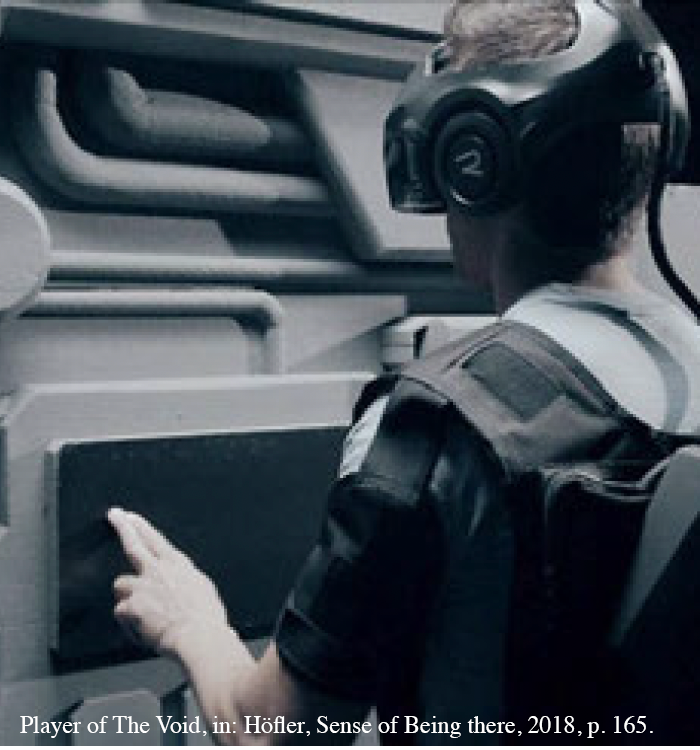
Workshop »Analog Haptics« (Discussion & Brainstorming)
In Nadine Kolodziey’s artistically exploratory work »Netsuke 2.0 – Phygital Sculptures«, augmented reality interacts with physically tangible sculptures. In Jens Isensee’s mixed reality work “Tauchgang” (AT), a hybrid sculpture is to be built from cardboard and digital elements. And computer scientist Sebastian Keppler’s research deals with the substitution of physical haptics where this is not possible in XR. The discussion about the haptic sense in increasingly hybrid XR experiences takes place within this triangle.
* FULLY BOOKED *
26.06., 4.30–5.15 pm
Moderation: Maja Stark
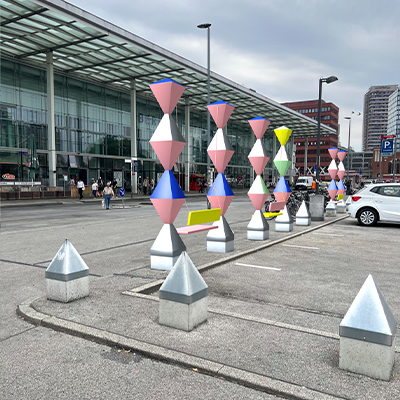
»from hostile to hospitable«, 2024 – app launch!
Developed in collaboration between the AURORA XR School for Artists and Martin Binder, the WebAR application »from hostile to hospitable« draws attention to hostile design in Berlin’s urban space: more or less discreet measures of urban design and strategic planning to crowd out certain groups of people and behaviours. The app invites users to discover such discriminatory places and hear from those affected about how these measures affect their everyday lives. Using augmented reality, users can overlay these spots with more people-friendly alternatives by artist Martin Binder.
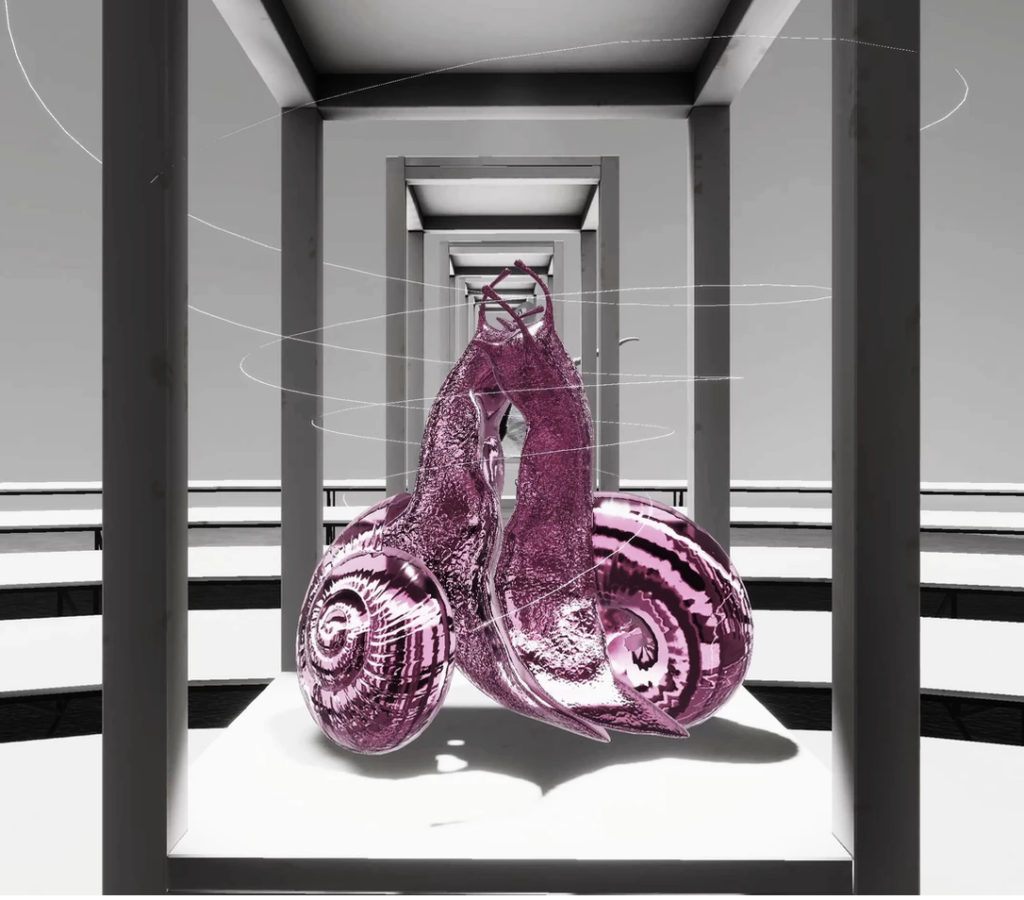
»Theatrum Radix«, 2023
»Theatrum Radix« is a transdisciplinary virtual reality project by artist Marlene Bart in collaboration with Ikonospace founder Joris Demnard and 3D artist Manuel Farre. Through surreal stories about nature, in combination with CT scans of the Museum für Naturkunde in Berlin, a modern architecture of knowledge is designed. The project ties in with a theme that has fascinated people since antiquity. The order of things and beings. The design is based on the artistic research of Marlene Bart, on encyclopaedic metaphors of the world.
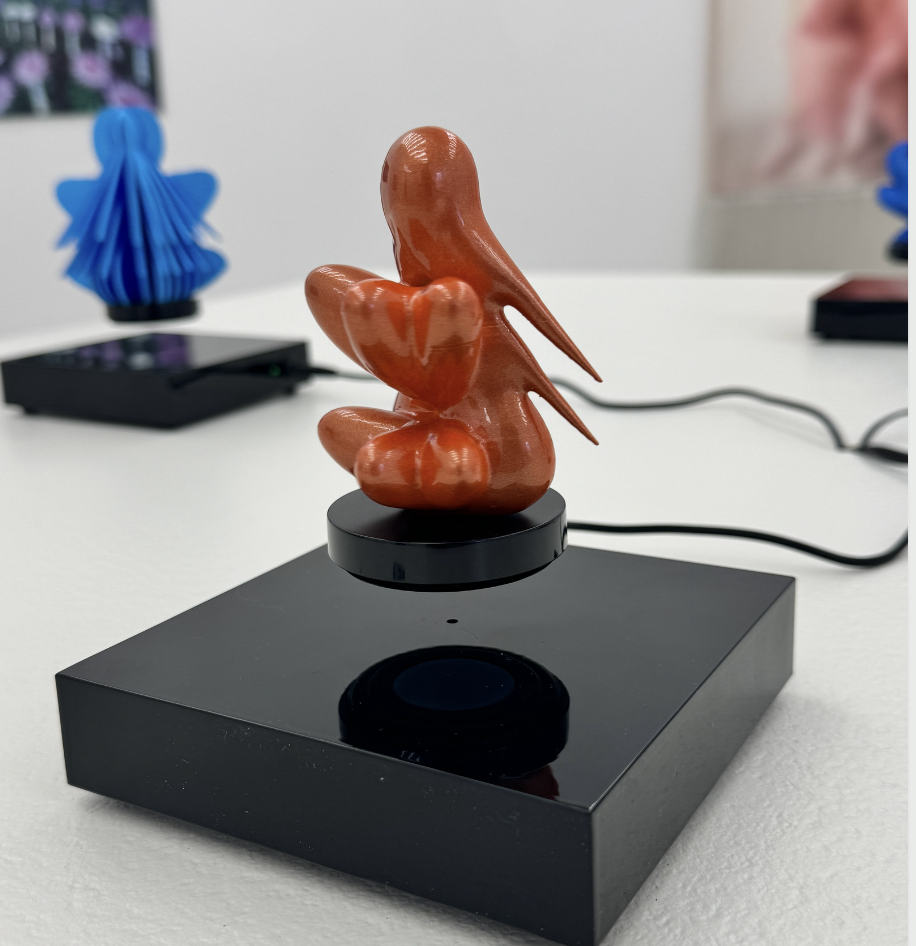
»Netsuke 2.0 – Phygitale Skulpturen«, 2024
The term »netsuke« comes from traditional Japanese art and refers to small sculptures that once served as fasteners for purses. Today, they are highly artistic collector’s items. Nadine Kolodziey uses this historical reference as a starting point to explore an innovative fusion of traditional craftsmanship, 3D printing, and digital technology. One of the strengths of the netsuke is its appealing tactile quality, which is combined with the digital in Kolodziey’s augmented reality work.
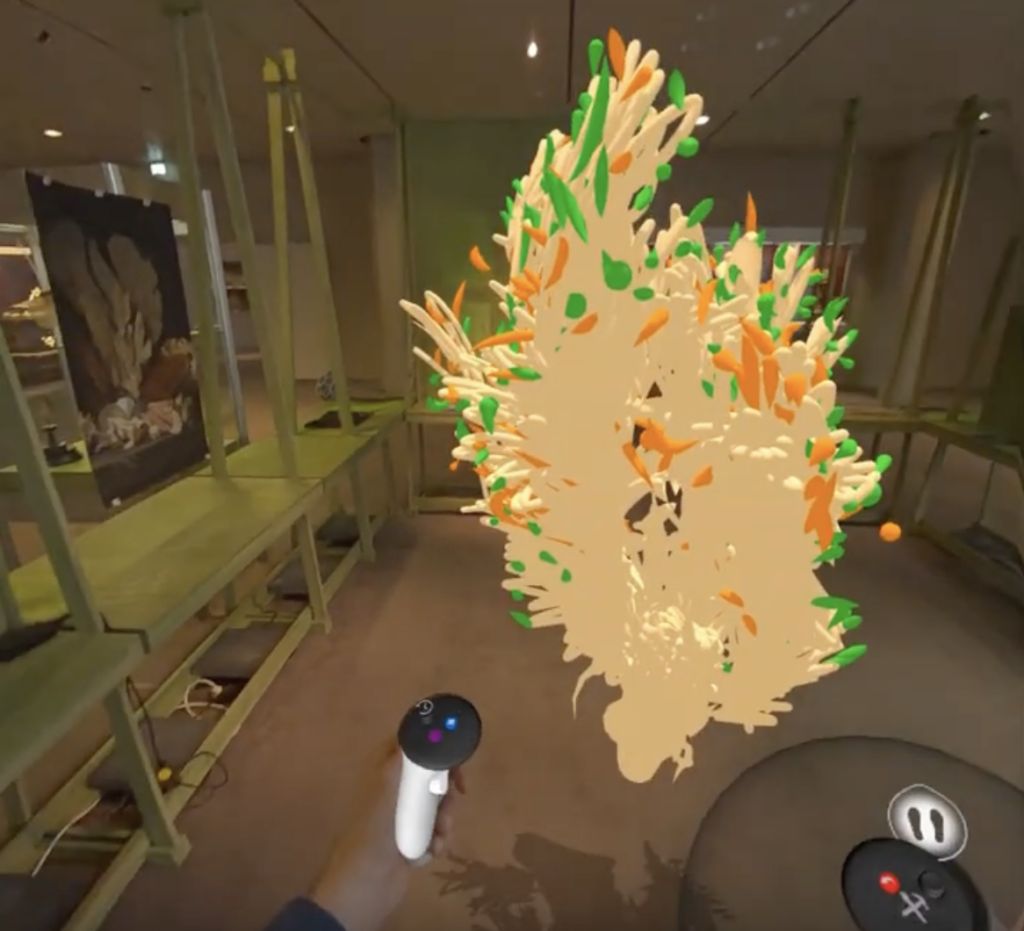
»VR Sketching«, 2024
PhD candidate Paulina Greta Stefanović, HTW Berlin, will present an interactive showcase with VR sketching approaches, developed in the living Speculative Realities Lab, a collaboration between Charité and Humboldt-Universität’s Cluster of Excellence Matters of Activity. In this installation, VR sketching becomes a means of mediation between the physical and haptic nature of an object and its digital twin.
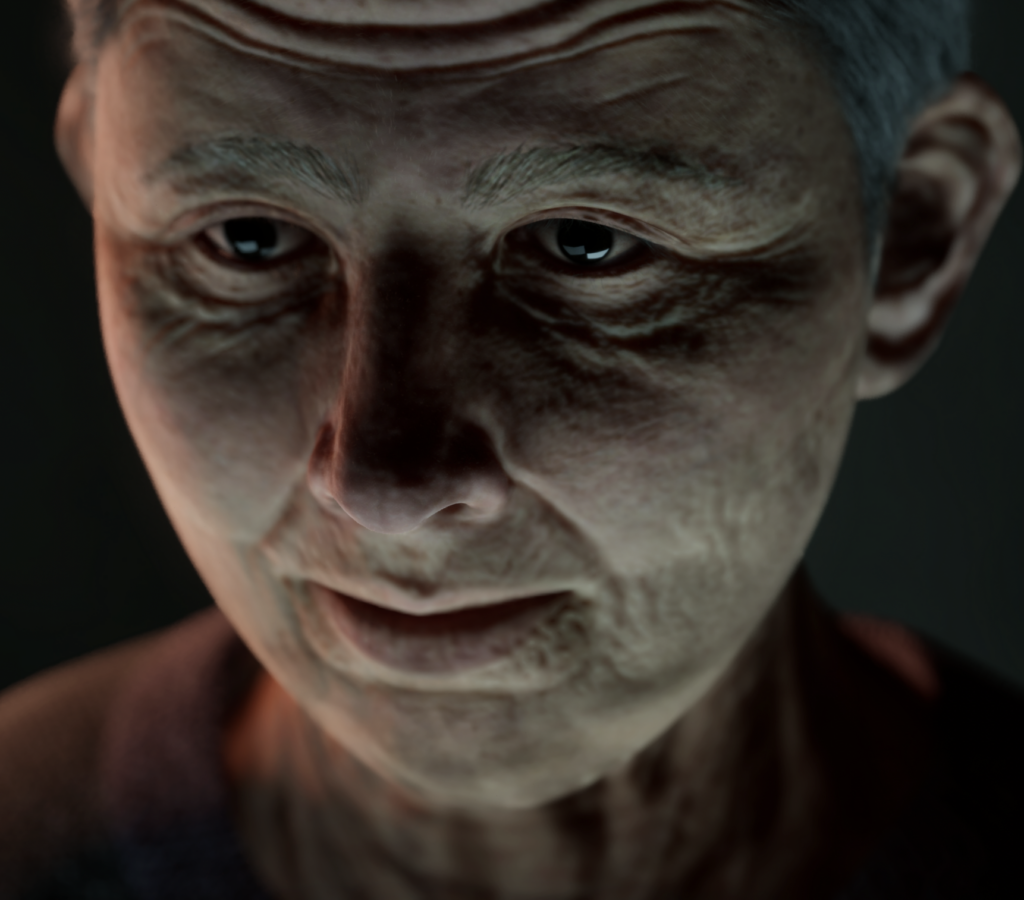
»n≠1«, 2023
In »n≠1«, Chantal Pisarzowski, HTW Berlin, explores the concept of digital twins through the interplay of hyper-realistic virtual reality avatars and AI-controlled dialogues. Users immerse themselves in a virtual world in which they can talk to the avatars of deceased persons in real time. The Berlin activist and feminist Helga Goetze, who was »reproduced« on the basis of personal data such as voice recordings, photographs and personal behaviour, serves as an example.
Supervised as a student project by Prof Pablo Dornhege and Prof Andreas Ingerl, School of Culture and Design, HTW Berlin
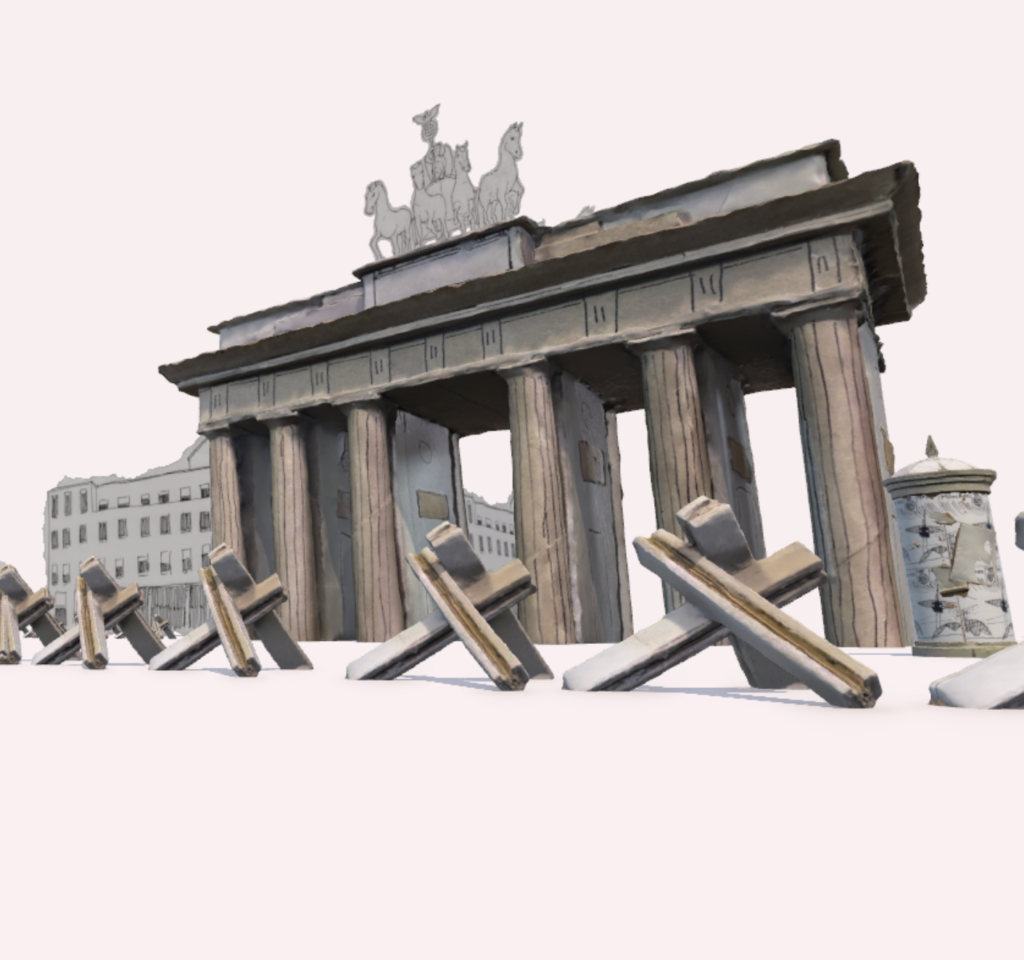
»zeitrissig – A virtual reality collage«, 2023
On a journey through the last century along Berlin’s most important historical axis, Straße des 17. Juni, one of the city’s most misunderstood inhabitants, the pigeon, offers us a unique perspective on the city’s complex history. »zeitrissig« – a work by Henning Marxen and Samuel Freimoser, HTW Berlin – cuts historical episodes out of their original temporal context and reassembles them in the form of a historical collage in virtual reality.
Supervised as a student project by Prof. Pablo Dornhege, School of Culture and Design, HTW Berlin.
